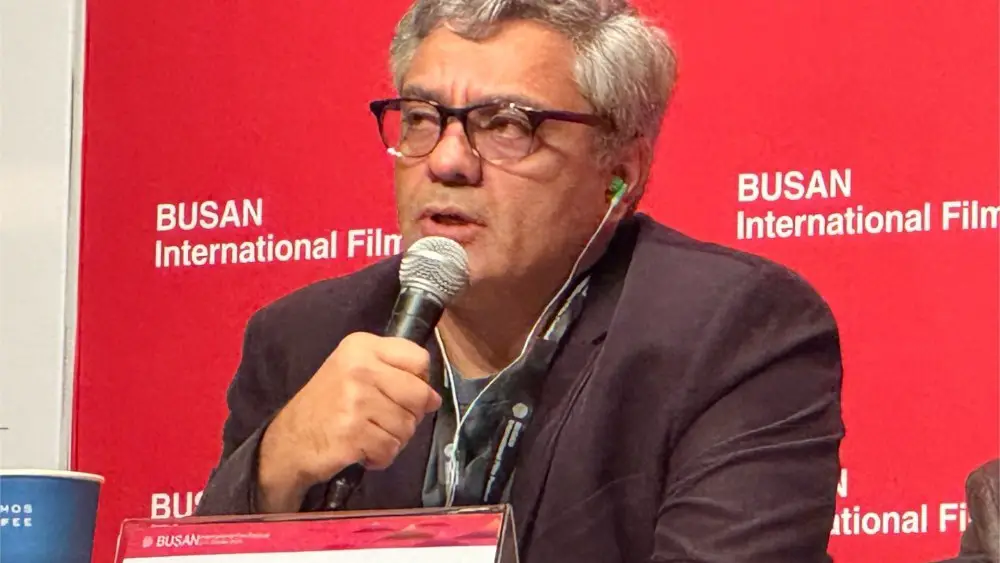Iranian dissident director Mohammad Rasulov has spoken about how his film The Sacred Fig Seed was selected for the Oscars in Germany rather than in his native Iran.
Mr. Rasulov gave a speech at the Busan International Film Festival, where he is the chairman of the New Currents Competition jury. In May, the filmmaker fled to Europe after being sentenced to prison and flogging by Iranian authorities. “The Sacred Fig Seed,” about an investigative judge at Tehran’s Revolutionary Court who grapples with mistrust and paranoia as anti-government protests intensify and family life is destroyed, won an award at the Cannes Film Festival.
“It’s a complicated situation. My film was withdrawn by the Iranian government and I was sentenced to eight years in prison. [in prison]” Rasulov said at the New Currents jury press conference in Busan on Friday. The filmmaker headed to Germany, where several of the producers of “The Sacred Fig Seed” were from. He expressed his gratitude to Germany for accepting the film and understanding his vision. “For me, this meant a lot, because they are reaching out and understanding other cultures and the human meaning that comes from those cultures,” Rasulov said. .
Looking to the future, Rasourov said he would make films “no matter where I am in the world and under any circumstances.” He added that the new film will be about “my culture and European culture.” [..] I have some new stories and I’m always thinking about new projects. ”
Iran has selected the family drama “In the Arms of the Tree” as its Academy Award nominee.
Rasulov’s jury of colleagues in Busan included South Korean director Lee Myung-se (“M”), Chinese actor Zhou Dongyu (“Strangers”) and Indian actor Kani Kusruti (“Strangers”). All We Imagine as Light) and film director Vanja Kaldjelčić. Rotterdam International Film Festival.
Kusruti, who starred in the 2024 Sundance Prize winner Girls Will Be Girls and the Cannes Grand Prix winner All We Imagine as Right, spoke about the renaissance of contemporary Indian independent cinema and said, “They is fine-tuning his acting and acting skills.” At the same time, it maintains diversity in its dialogue and cinematography. ”
Kaldjelčić added: “From all regions.” [of India] We are so different not only in language and culture, but also in our approach to films and film language, that one day you will soon be amazed by the film language as you watch thousands of films of your choice in Rotterdam. Most of us are from India. ”
